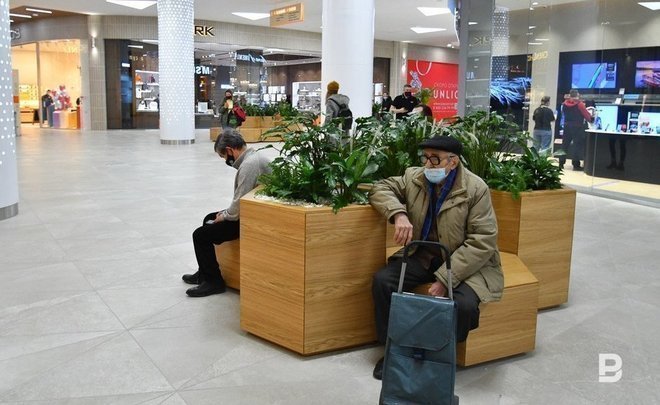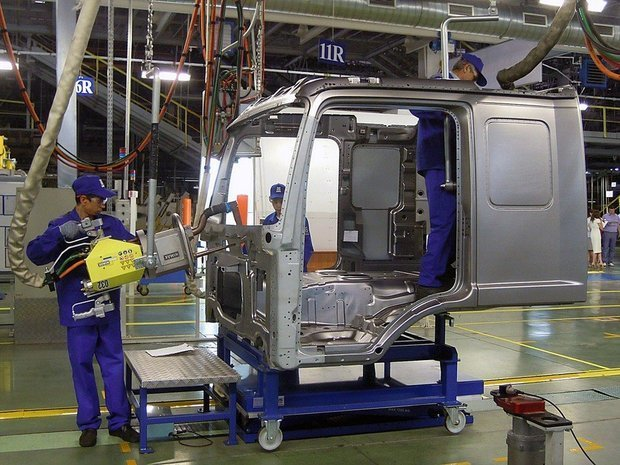‘Belarusians are helping us to go through the acute phase of import substitution’
With the exit of popular brands, producers of friendly countries are occupying their seat in Tatarstan

“Belarusian producers are meeting the needs of Tatarstan enterprises that appeared after the forced breakup with foreign suppliers. This is how we are going through the acute phase of import substitution in the industry painlessly,” Tatarstan Vice Premier and Minister of Industry and Trade Oleg Korobchenko explained the course for cooperation with Minsk. Last month alone, the companies of both republics signed contracts for 2,4 billion rubles. But the most important thing is that the creation of a joint machine tool engineering cluster must be the result of recent talks between Tatarstan and Belarus. Belarusian Horizon holding encouraged the jump to a new level to expand the supplies of its products to the republic.
Belarusian brothers are helping on all fronts
A total reset awaits the trade relations between Tatarstan and Belarus very soon. If the foreign trade turnover between the republics was $851,9 million last year, in the wake of complete import substitution Tatarstan enterprises are tuned for a new rise in business relations. The coverage has no limit — from traditional supplies in petrochemistry to the creation of a new cluster in machine tool engineering.
“Our enterprises actively cooperate with Belarusians. It is petrochemistry, tyres, KAMAZ (car components). We work with Amkodor (a Belarusian special machinery manufacturer). The talks are held in all the areas, through machine tool engineering,” Tatarstan Vice Premier and Minister of Industry and Trade Oleg Korobchenko told Realnoe Vremya.

The boom of mutual interest of Tatarstan and Belarusian companies on all fronts is related to the deficit of feedstock and components in the industry. “Now Belarusians are helping us to go through the acute phase of import substitution, filling the gaps that have formed with the exit of foreign partners,” the Tatarstan vice premier explained. Under the pressure of international sanctions, Belarusian companies have refocused their supplies on the Russian market promising to fully do the task of ramping up exports till the end of the year. The first descent of the Belarusian team chaired by Belarusian Prime Minister Roman Golovchenko in Tatarstan ended with the signing of contracts for 2,4 billion rubles.
According to the press service of the Belarusian government, there was signed an agreement on long-term cooperation between the Ministry of Industry of the Republic of Belarus and KAMAZ PJSC until 2025, a protocol on intentions between Avtotekhnic from Chelny and Polotsk-Steklovolokno to supply fibreglass roving for about $0,3 million. The Minsk Tractor Plant agreed with RariTEK Holding to organise supplies of 250 Belarus-1221.3 tractors until February 2023 and with Kamminz-Kama to supply engines to assemble tractors at MTZ PJSC and TPK MTZ-Tatarstan CJSC in 2022-2023. Also, there were signed two contracts between MTZ PJSC and TPK MTZ-Tatarstan CJSC to supply 1,310 Belarus-82.1/82.1-23/12 tractors in 2023 for some $30 million. Biotex from Nizhnekamsk signed a contract with SvetlogorskKhimvolokno to supply polyether fibres for approximately $3,3 million.
Belarusians called for the machine tool
But machine tool engineering is the most promising area the sides are working on now. “We want to create a machine tool engineering cluster in Tatarstan together with Belarus. We need to make 2,000 machine tools a year,” the vice premier said.
Also, it is planned to start the production of unmanned tractors in Tatarstan — a joint development of MTZ-Tatarstan and Kazan Federal University. A sample of such machinery designed to do specialised works in open territories — fields, farm, factories — were demonstrated during Roman Golovchenko’s visit to Kazan.
The creation of joint enterprises with Belarusian capital isn’t yet discussed. It is expected an intergovernmental agreement on principles of united industrial policy and an agreement on record of technological operations will be signed in October. This will open access for Russian companies to the Belarusian market and for Belarusian companies to the Russian market, first of all, within federal and regional subsidisation programmes. In this regard, Tatarstan is a good test site, noted Ambassador of Belarus to Russia Dmitry Krutoy.
“Absolutely all novelties of our buses, lorries, low tramways are tested precisely here. The geographical footprint of our equipment is very big here, and the programme existing at regional level allows both our enterprises and Tatarstan consumers of our equipment to work comfortably,” he said.
“Do you remember Horizon TVs?”
Belarusian producers of household appliances have been more active amid the wave of sanctions. Particularly Horizon holding — the biggest producers of household appliances and electronics in Belarus has almost doubled the shipping of TVs known under the brands of Asano and Leff.
“Horizon holding is expanding its footprint in Russian retail store chains now helping to solve the problem of import substitution,” said Oleg Korobchenko. “Do not you know Horizon TVs? Don’t you remember?” he was surprised with journalists’ questions.
As it turned out, not the opening of its own store chain is being discussed but a bigger number of shipping through the Russian retailer of household appliances — DNS and OZON marketplace (key selling channels in Russia).
“We are expanding the network of distributors,” Realnoe Vremya was confirmed the information in the Moscow office of Horizon holding. “80% of TVs sold in Russia this year are made by Minsk-based Horizon plant.”
According to the company, the amount of TV supplies has surpassed the bar of a million pieces by September 2022. By the end of the year, the holding plans to make and ship about 350-400,000 pieces to our country. As a result, the growth is expected to be 1,5-2 times because “about 700,000 TVs were supplied to the Russian market last year.”
The company says exports to Russia have rapidly grown because of the exit of foreign suppliers.
“European, Korean, Japanese companies stop shipping products to Russia because of the sanctions. So Panasonic and Sharp reduced their supplies, they are closing their businesses, decreasing their activity, so we are replacing them,” the office of Horizon noted.
According to the company’s workers, now there is a rise in orders of low-cost Asano and Leff TVs for 15,000 rubles. The first Belarusian TVs were supplied to Volga DNS stores in 2019. “We are in all price categories except for premium brands (they aren’t made yet). But there are high-quality products too,” the office of the holding noted. The company added that Tatarstan is a stronghold in the distribution of logistic freight among retailers.
“We started supplying equipment as early as 2008 to M.Video chain where jointly made microwave ovens Midea-Horizon were shipped. M.Video still has a big logistic centre near Kazan where Belarusian equipment is directly shipped from Minsk,” the Moscow office of the holding explained.
Belarusian Sber TVs started to be sold in mid-March. They are produced at Vityaz plant in Minsk (a rival of Horizon) in Belarus, while M.Video-Eldorado sells them. The company estimates that about 6,5 million TVs for a total of 180 billion rubles were sold in our country last year. Even though the market is at the level of 2019 in terms of the number of equipment sold, in monetary terms, it rose by 5%. It is also noted that Smart TV models in 2021 accounted for more than 70% of the market in the number of goods.
Also, till the end of the year Horizon holding plans to start selling Belarusian laptops. “Serial production is planned to start,” the office of the holding added.
“We are actively working in Tatarstan. Our products are well represented in federal chain stores and will have a bigger footprint. We make and supply TVs, microwave ovens, gas cooks, water boilers. By December 2022, laptops are going to be sold. We and our partners have direct contacts with chain stores. Chain stores in Tatarstan have a lot of products of the holding represented by more than 50 brands,” representative of Horizon Rus JSC Alexey Kosterev explained to our newspaper. “We are open to new orders.”